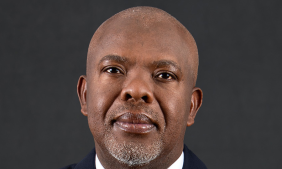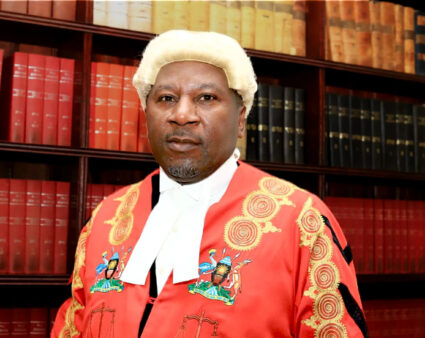Many times the word ignorance is applied, it is taken as an abuse or insult. In law, an ignorant person lacks knowledge of a given subject matter. Generally, ignorance is the condition of being uninformed or uneducated. It is a lack of knowledge or information.
The term supplier in the context of this article means a provider of goods, services and works to an entity either for government or non-government. Generally, it is difficult to have statistics informing us of the level of supplier ignorance. However, existing literature shows several parameters that can be relied upon to ascertain supplier ignorance as far as the contracting and procurement process is concerned.
According to the Institute of Procurement Professionals of Uganda (IPPU) journal, lack of basic knowledge in the procurement law, inadequate capacity to appreciate the standard tender documents, poor access to tender information and insufficient technical and managerial skills to be competitive in the tendering process are some measures that can be used to justify an ignorant supplier.
In addition to the above, critical due diligence on the supplier operation and practices clearly shows that; a shortage of qualified personnel, lack of adequate financial resources, lack of adequate office space, non-compliance with some provisions of the law, poor records management and overpricing of goods, works and services by bidders even though there are well-established avenues put in place to assist suppliers to gain this information by the government may also give supportive evidence of the extent of supplier ignorance.
Ignorance is always at its worst when the ignorant assume they know it all. There is a limited culture amongst the supplier base willing to pay procurement professional fees. Even though there is no law forming the procurement professional body in Uganda, there is a well-structured proxy body/umbrella in which procurement professionals converge. It is also a fact that procurement is a profession and thus a need for suppliers to respond to the procurement ethical demands.
Despite these gaps, the procurement process must go on and contracts must be awarded. It is therefore not clear whether contracts are being awarded based on which supplier is more informed than the other. The default standard measurement basis for awarding contracts in Uganda is “the best evaluated lowest bidder”. How this is reached in most cases is what should interest anyone, as shown below.
Influence peddling in the context of this article means the practice of using one’s influence, especially in government or any other organised group or connections with the authorities to obtain favours or preferential treatment for another, usually in return for payment. It is a form of bribery where the beneficiary is not necessarily the official one. What matters is the social or professional position. It’s a matter if proven in court attracts some punitive action.
In Uganda, the parent ministry for procurement operations is the Ministry of Finance and Economic Planning. Under the ministry, is the Public Procurement Policy Department responsible for procurement policy formulation. The regulatory authority is the Public Procurement and Disposal of Public Assets Authority (PPDA). The managerial structure derives its divine authority from the PPDA Act 2003 as amended and supported by the procurement policy, procurement guidelines and Directives. There are other structures as formulated in Ministries, Departments and Agencies of Government (MDAs). There is also a tribunal established to handle procurement disputes.
On the private sector and non-government organisations’ part, they have their individual procurement policies and manuals. However, in the event of any dispute, the National Law takes precedence except for where international bodies like International Monitory Fund (IMF), World Bank, European Union (EU) etc have specified their guidelines.
Therefore, the legal framework of the procurement function is firmly and well established.
The book, Animal Farm states that “All animals are equal, but some are more equal than others”. Indeed, this is no exception to the procurement processes in Uganda. Influence peddling comes from all sides of the established government structure machinery. It is both internal and external. It is caused by suppliers, politicians and the procurement professionals themselves disregarding the laws.
It is a fact that most politicians and public servants privy to procurement information own proxy companies. They do collude with private individuals who represent their interests in organisations where they work. Because they are in top management, they exert pressure on procurement officers to award contracts especially those of huge sums to their companies. The PPDA together with URSB and other government agencies have tried to introduce the Beneficial Ownership information/form as a countermeasure to this problem. Whether it will work is a subject matter for another day.
Suppliers also use their social, political and financial power to manipulate the legal processes of procurement. They also rely on their relatives and other connections in Government and organisations to access important information like minimum and maximum price quotations. Late submissions are also allowed to some groups of people and quotation editing. The Manual procurement process has no limitations on this level of impunity. This is why most government entities are reluctant to shift to EGP.
Procurement officers may be involved in malpractices, such as misusing the power of invitation by only inviting preferred firms, favouring certain firms at the short-listing stage, designing tender documents in favour of particular firms or releasing confidential information. While some procurement officers have in their selfish interests chosen to violate procurement rules, they work in most cases under the influence of powerful players. There are many other ways influence peddling is manifested but that will be the subject of the future.
What then should be done to counter these two efficient and effective procurement monster hindrances? Of course, several steps have been taken to minimize these monster practices but more is yet to be done. The Electronic Government Procurement system is one of the progresses so far registered. Though the journey is still long.
Although this may seem impossible in the current political landscape in Uganda; there is a need to insulate the PPDA from political pressures and if possible, make it independent from the Ministry of Finance and Economic Planning to give them more power and authority.
There is a need for adequate training of procurement staff and more especially suppliers, consultants and contractors to be able to challenge anything detected to be untoward in the procurement process. Unqualified procurement staff leads to misapplication of the procurement procedures and delays. The Institute of Procurement Professionals of Uganda (IPPU) regularly organises some Continuing Professional Development (CPD) training courses. Some Agencies like Kampala Capital City Authority (KCCA), Bank Of Uganda (BOU) and Uganda Revenue Authority (URA) have championed the organisation supplier forums and universities have developed Masters’s degree courses for Procurement and Supply chain professionals.
There is a need for a professional body for procurement professionals with a working law. There are efforts in Uganda by the Procurement Policy Department together with other stakeholders to effect this. Although the process is still held up somewhere. Maybe in the future, this will also be a reality. The professional body will among others discipline the practitioners in all spheres of practice.
Finally, there is a need for political will. corruption and influence peddling occurs throughout the procurement process and project cycle with the root causes being project participants such as political influencers, public servants, clients, consultants, contractors and suppliers. A demonstration of political will in fighting corruption in public procurement and ensuring that the procurement law functions will remain paramount to the success of the procurement.

 Companies Rise or Fall on How Well They Renew Their Leaders
Companies Rise or Fall on How Well They Renew Their Leaders


